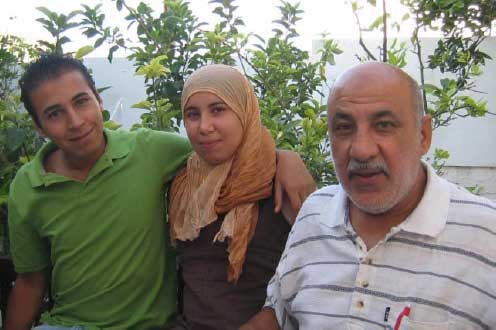The release of 21 political prisoners in Tunisia is a welcome step, but the government should release dozens more held for nonviolent political activities, Human Rights Watch said today.
Among those released on July 24, 2007 was Mohamed Abbou, a lawyer sentenced in 2005 to three-and-a-half years in prison for criticizing President Zine el-Abidine Ben Ali and conditions in Tunisian prisons. Most of the others released were leaders of the banned Islamist an-Nahdha movement who had been in prison since the early 1990s.
“The government has long claimed Tunisia has no political prisoners and these releases bring us a step closer to that elusive goal,” said Sarah Leah Whitson, Middle East and North Africa director at Human Rights Watch. “But there are still dozens held in Tunisian prisons just because they opposed the government.”
Shortly after coming to power, Ben Ali cracked down on the Nahdha movement after claiming to have discovered a plot to overthrow the state. Hundreds of its leading figures were given long prison terms after unfair trials, mostly in military courts. Authorities continued to arrest and imprison an-Nahdha members who had not fled into exile. About 100 activists from that period remain in prison.
Most of those freed on July 24, the eve of the anniversary of the Tunisian republic, were nearing the end of their prison terms and were released conditionally, meaning that a judge can order their re-arrest at any time for activities deemed incompatible with their status.
Many had been imprisoned after patently unfair trials. For example, the courts gave Daniel Zarrouk four separate sentences for the “offense” of membership in an-Nahdha for the period prior to his arrest in 1992, in violation of the principle that no one should be judged more than once for the same deeds. Human Rights Watch exchanged letters with the authorities about Zarrouk’s multiple convictions for the same deeds.

Daniel Zarrouk, the day after his release from prison, with his two children © 2007 Private
The Tunisian government maintains that an-Nahdha is an extremist movement that sought to establish a fundamentalist state. An-Nahdha’s leadership-in-exile says it routinely condemns violence and is committed to using only democratic and nonviolent means to achieving a democratic and tolerant Islamic state.
Abbou, the only released prisoner not affiliated with an-Nahdha, was arrested in March 2005, two days after publishing an online commentary comparing Ben Ali to then-Israeli prime minister Ariel Sharon. Six months earlier, he had compared Tunisian prisons to the US-run Abu Ghraib prison in Iraq. He was sentenced for “insulting the judiciary” and spreading “false information likely to disturb the public order,” and on separate, trumped-up charges of having assaulted a woman lawyer in 2002.
While continuing to clamp down on critics like Abbou, authorities have freed long-term political prisoners in batches since 2004, usually on the occasion of national holidays.
During the same period, however, authorities have arrested at least several hundred persons, mostly young men, and charged them under the 2003 anti-terror law with involvement in terror organizations or planning terrorist activists. Many have been convicted and sentenced to long prison terms; however, most are currently in pre-trial detention.
Those freed on July 24, in addition to Abbou and Zarrouk, are: Noureddine Amdouni, Issa Amri, Sahbi Atig, Mohamed Kamel Besbes, Samir Ben Tili, Mohamed Geuloui, Noureddine Guendouz, Fathi Issaoui, Fraj Jami, Abdelhalim Kacem, Jalel Kalboussi, Maher Khalsi, Ahmed Labiodh, Ajmi Lourimi, Mnaouer Nasri, Ridha Saidi, Taoufik az-Zairi, Ali Zouaghi, and Mohamed Bouazza. The courts had originally sentenced several of them to life terms.
The next major national holiday is November 7, the 20th anniversary of Ben Ali’s arrival in power, an event the government refers to as “The Change.”
“The release of these prisoners is a positive step,” said Whitson. “But only when no one remains behind bars for peaceful political expression or activities will people sense that Tunisia has really changed.”






